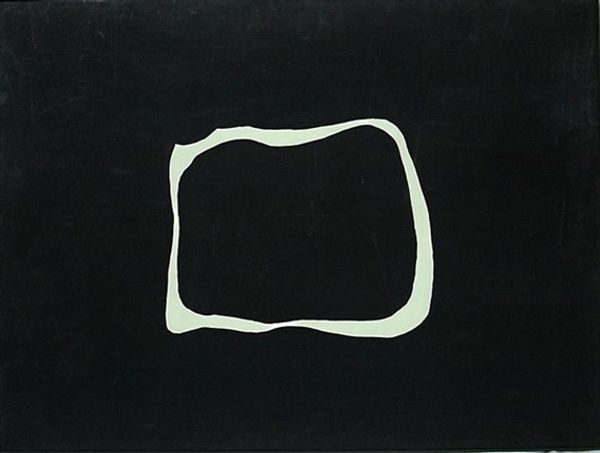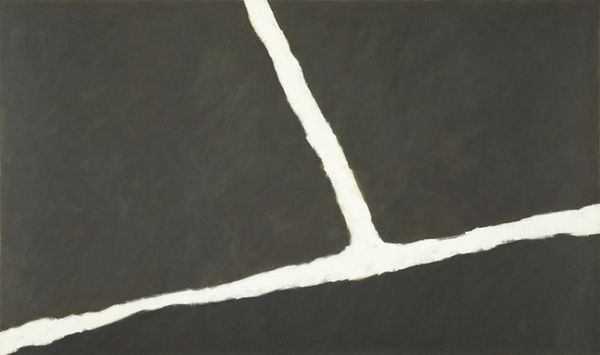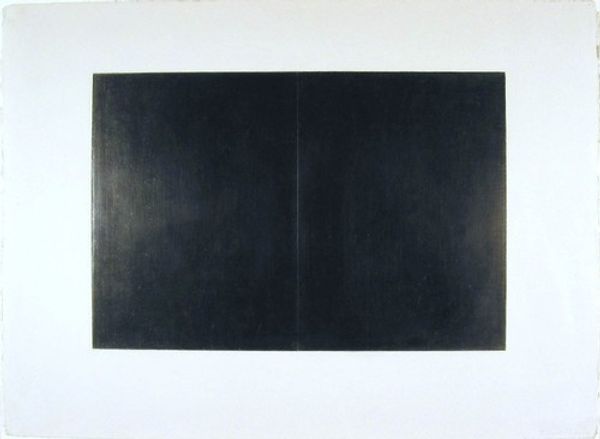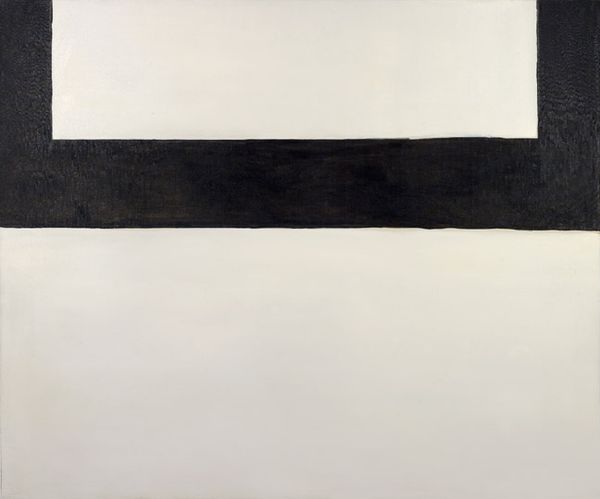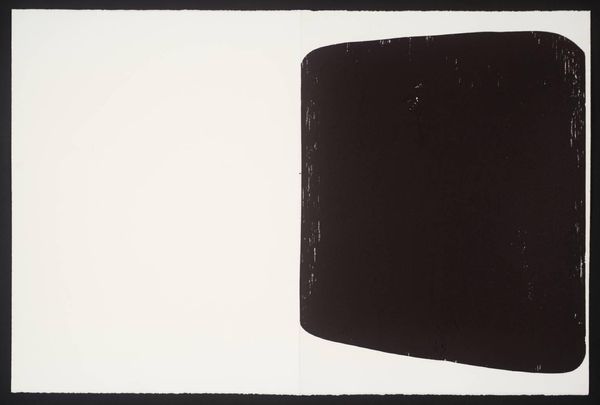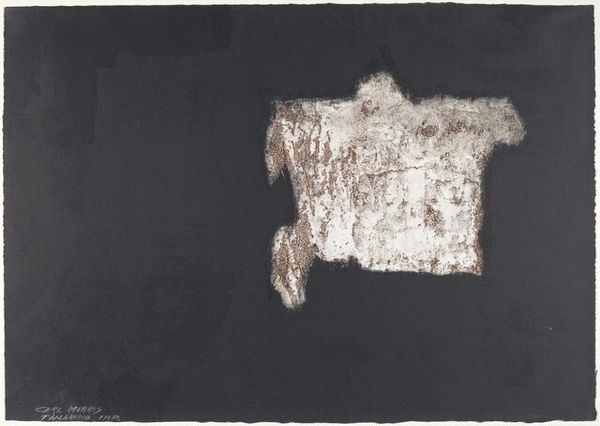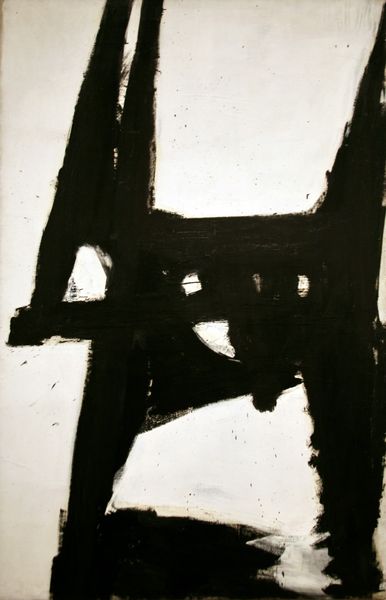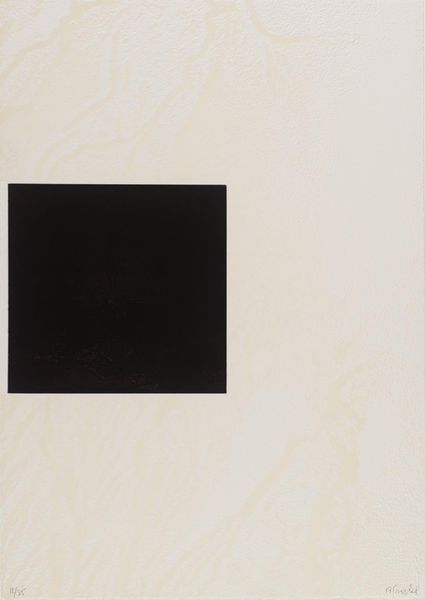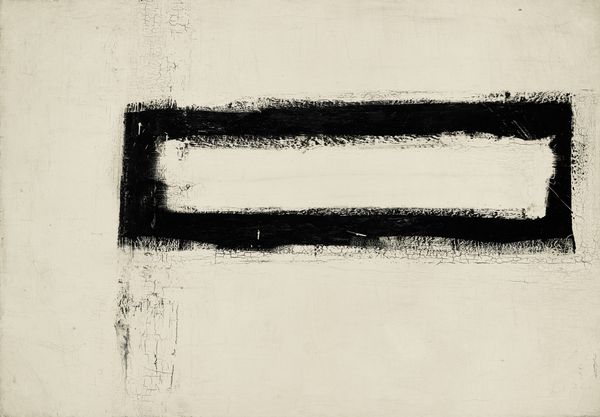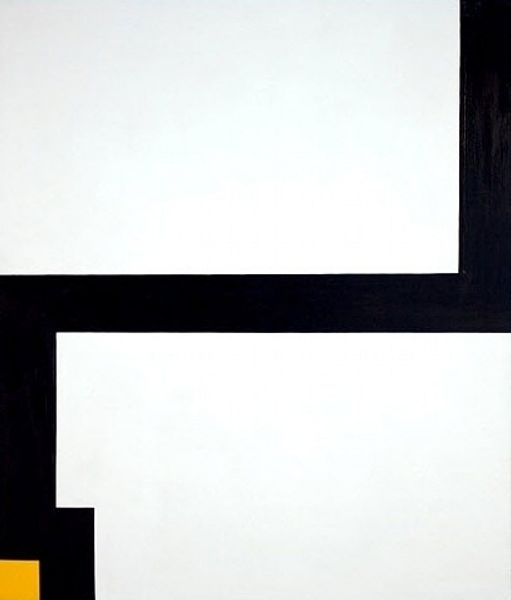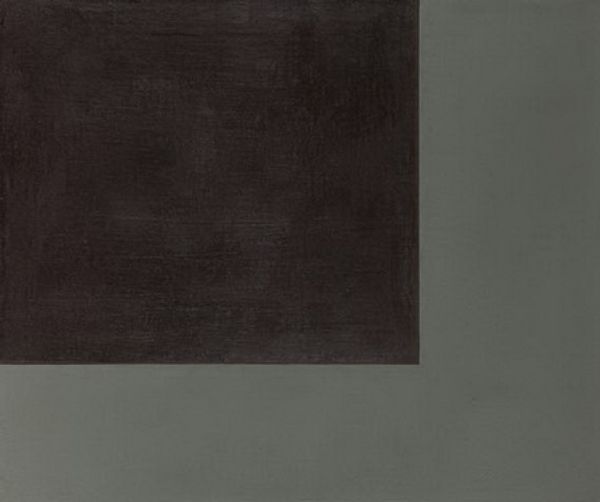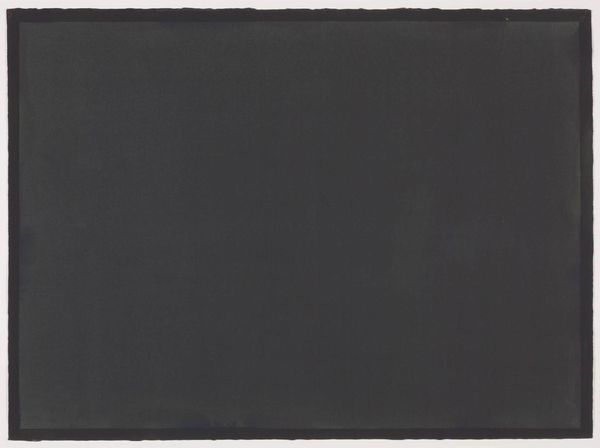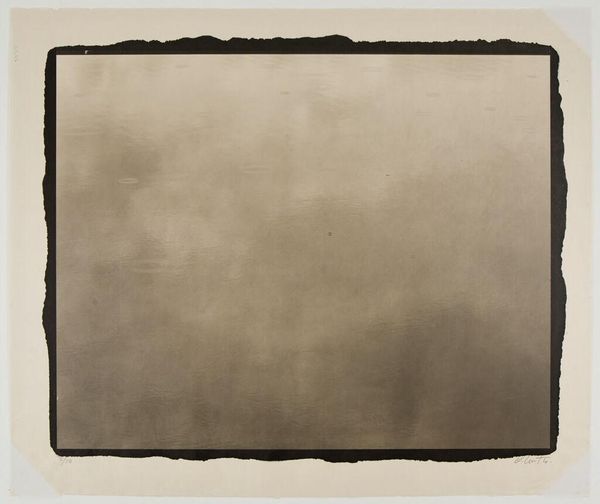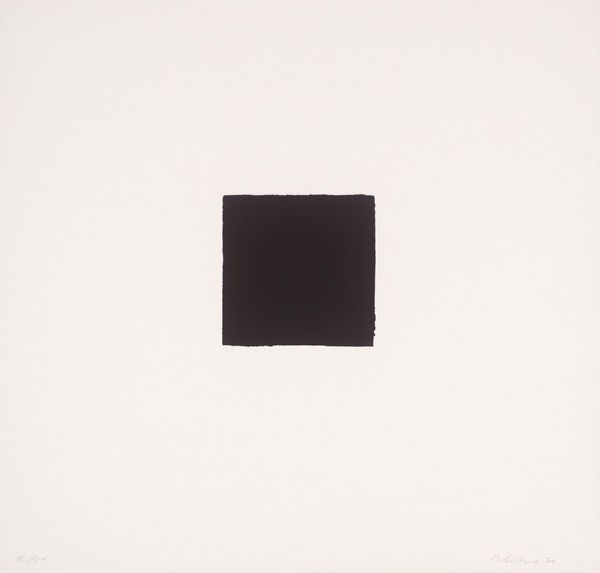
#
photo of handprinted image
#
rippled sketch texture
#
swirl
#
old engraving style
#
woodcut effect
#
hand drawn type
#
linocut print
#
rectangle
#
ink drawing experimentation
#
embossed
#
doodle art
#
gutai
Copyright: Jiro Yoshihara,Fair Use
Curator: This is "Work" by Jiro Yoshihara, created in 1971. Editor: Stark, isn’t it? Just a rough, almost gestural white rectangle against a dense black field. Very impactful. Curator: Indeed. Note how the composition is deceptively simple. The ground itself appears slightly textured, disrupting the monochrome surface with visual intrigue. This directs our focus primarily to the foreground rectangle. Its lines are imperfect, hand-drawn, giving it an organic quality, breaking from purely geometric forms. Editor: I’m drawn to what seems to be the printmaking process. Judging from the texture and slightly uneven application, I wonder if this is a woodblock or linocut. Consider the labor involved in carving the block, applying the ink, and pressing it to create such a deliberately stark image. It shifts our understanding to something that involves an individual craft. Curator: Interesting perspective. Formally, the contrast is what captivates me. The juxtaposition creates a dynamic tension. Semiotically, you might even argue the void speaks to a kind of restrained power, the white rectangle functioning as both figure and ground. Its form challenges conventions, disrupting your focus because the hand rendered execution suggests it cannot or should not resolve. Editor: But how much did Yoshihara’s engagement with Gutai shape his vision? This feels directly tied to his radical experiments, an attempt to break with traditional methods, which in themselves embody the politics of postwar Japanese art. Curator: Perhaps. Yet, one can equally consider how it interacts with modernist conventions and the aesthetic theories being pushed at the time. What's fascinating is how it simultaneously adheres to certain formal principles while subverting them. Editor: It speaks volumes about how the means of production influence our understanding. Curator: Ultimately, "Work" allows for so many avenues of interpretations. Editor: It does invite a meditation on the tactile process that goes into rendering minimalist form. Curator: Leaving us, I believe, with a richer sense of its inherent complexities.
Comments
No comments
Be the first to comment and join the conversation on the ultimate creative platform.
